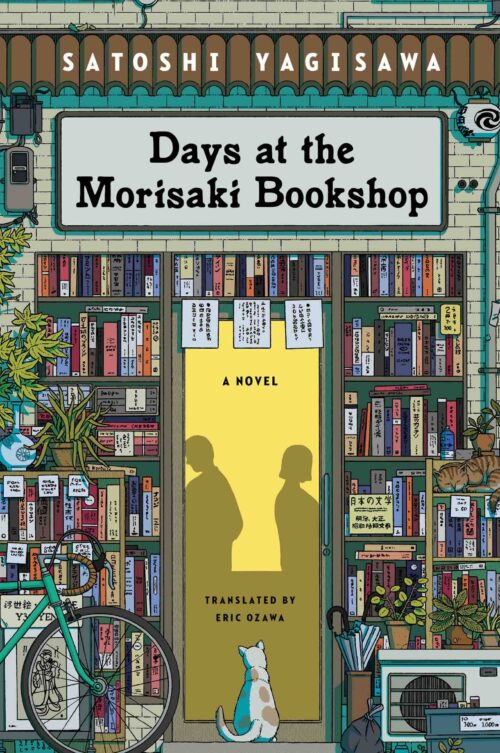First Thoughts
I don’t know if it was the cover or what it was, but I couldn’t resist buying it even if I was actually shopping for something else. I was at a bookshop near the Louvre in Paris when I saw this book for the first time I was. I was familiar with neither the author nor the international success the novel had had and it’s not the kind of book I am usually drawn to, but it looked like a cozy autumn quick read and I was feeling like it, so I bought it.
Synopsis
The story is set up in Tokyo and follows Takako, a girl who is following the traditional social path on her way to the sequence of success. She finished university, has a stable job, has a relationship with a boyfriend with whom she thinks about having a future, etc. However, everything changes for Takako when a reality check gets her whirl pooled into heartbreak and depression.
Her inability to cope with heartbreak, ends up with her leaving her job, closing into herself and feeling that she is a failure. When she is about to surrender and go back to her parents, she receives a call from her uncle Satoru Morisaki. He offers her to live for a while in the upper floor of his bookshop in exchange for helping him out with the business. The Morisaki Bookshop, is located in Jimbocho, the iconic bookstores neighborhood in Tokyo.
During her stay at the bookshop, which has been in Takako’s family for 3 Generations, she meets a variety of new people, including her aunt Momoko, confronts her fears and even finds love again. Her time in the bookshop with her uncle, ends up being a life changing experience that will not only be healing but life changing for her.
Review
The story is mostly driven by character dynamics since the book is mostly focused on personal relationships and their importance they have in our lives. Takako and Hideaki, Takako and Storu, Satoru and Momoko, Takako and Wada, Takako and Momoko… Try saying any of these 10 times very fast.
There are two main storylines: Takako’s one, which has different plots and develops throughout the whole book, and that of Satoru and Momoko, which is more prevalent in the second part of the book.
Something that I like about how the story is written and I did not realize until writing this post, is the gradual healing Takako experiences throughout the book. There isn’t a specific page where you say: on this page she is not well but on the next one she’s already fully healed and strong. She has better and worse moments like everyone else. In fact, this process of healing happens gradually and you almost don’t realize it is happening while reading. Sounds familiar? I am sure it does.
In my opinion, the book touches 3 big main themes: expectations, change and letting go of things.
I believe the book talks largely about expectations and the difference between those we have and reality. Things are almost never as we expect them to be and life sooner than later, has an unexpected way to show us reality. Like when Takako idolizes Hideaki or when she thinks Momoko is the devil’s cousin.
The necessity of learning to let go of things when reality clashes with expectations is the second big driver of the whole book because it happens at different levels. For Takako, not being able to let go of Hideaki keeps her mentally and emotionally stuck for the first part of her story. Or for instance, Satoru understands early on, when Momoko leaves him, that he must let her go for two main reasons: his love for her makes him want her happiness above everything else and to allow himself to be happy as well.
The underlying theme of Change is subtly hidden in plain sight throughout the whole book. Whether you like it or not, changes are going to happen and whether these are good or bad, they can sometimes be hard to process.
The first big change Takako experiences is when Hideaki reveals his true face and her entire life crumbles. The comings and goings of Momoko also change the status quo of Satoru’s emotional life. Whether it is by choice or obligation, important changes always have emotional implications. Learning to cope with them is what makes us grow as a person and helps understand that nothing lasts forever and nothing is for granted.
Final thoughts
I really liked the beginning, where Takako’s plot twist catches you off guard. You just do not expect it. At least I wasn’t. I think it is also what hooked me from the start, because some other parts of the story are a bit slower. Sometimes, it seems like nothing of importance happens in some scenes, but the author is laying the foundations for the themes he wants to talk about nonetheless.
This is a short book that reads very well while touching several deep topics like personal relationships, heartbreak, depression, sickness, the search for love, the importance of letting go, etc. if you think about it.
Recommendation
Even if it isn’t one of the most compelling books i’ve ever read and it sometimes seemed disjointed, specially towards the end, it still is one of those books that feel good and it makes you want to continue reading at the end of each chapter. The book reads fast and uses easy language. It can be a perfect choice for those times of the year when you would feel a bit more melancholic, since it has that kind of vibe.
